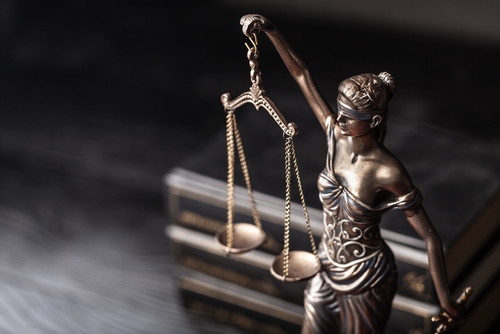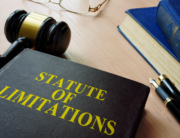Florida’s premises liability law outlines what you have to prove to pursue financial damages if you are hurt on someone else’s property because of a dangerous condition. Suffering an injury is not sufficient, by itself, to subject the landowner to liability for your losses.
Elements of Premises Liability in Florida
Florida property owners have a legal duty to keep their premises safe for lawful visitors. A lawful visitor is anyone who is on the property legally, like a social guest, a repair person, or someone reading a utility meter or delivering packages.
The landowner must take reasonable measures to safeguard lawful visitors, but there is no legal duty to protect trespassers from harm. A property owner must merely refrain from intentionally harming people who are on the premises illegally, including “booby-trapping” the land or buildings.
We will have to prove all of these factors to hold someone responsible for your losses if you got hurt on someone else’s property:
Dangerous Condition
There must be a dangerous condition on the property. If you trip over your own feet and there was no hazard that caused you to fall, the landowner is not liable. Let’s explore the concept of a dangerous condition, on both commercial and private property, with the following examples:
- Commercial property. A fast food restaurant has a self-service soft drinks station. There are frequent spills in front of the station because customers overfill their drink cups. It is hard for patrons to see puddles on the floor because of the lighting and the flooring material. The slick area is a dangerous condition that could lead to a slip and fall accident.
- Private property. A homeowner invites neighbors over for a backyard cookout, but there are venomous snakes living near the swing-set. The snakes are a dangerous condition.
In both scenarios, the facts satisfy the requirement of a dangerous condition on the premises.
Owner Knew or Should Have Known About the Hazard
If the owner did not know about the hazard, and reasonable inspection of the property would not have revealed the problem, the owner is usually not liable. When an owner does know about the situation, the owner can be responsible when people are hurt because of the dangerous condition.
- Commercial property. The employees at the fast food venue knew about the spills from stepping into them and from customers complaining about the sticky mess. The staff members reported the problem to the manager.
- Private property. The homeowner knew about the snakes and avoided that part of the yard.
In both situations, the facts meet the requirement that the owner knew or should have known about the hazard.
Owner Failed to Take Reasonable Steps to Correct the Problem or Post Adequate Warnings
A property owner cannot merely sit back and watch innocent people get hurt by the dangerous condition. The owner must take reasonable steps to fix the situation or post warnings that prevent people from harm.
- Commercial property. The restaurant manager could have installed skid-free, absorbent mats in front of the drinks station to soak up the spilled liquids and prevent people from losing their footing. Also, the manager could have posted a sign that warned patrons of spills on the floor. In our example, the manager took no action to protect people from harm.
- Private property. The homeowner should have had a pest control company remove the nest of snakes before having guests in the backyard. Also, the owner could have cordoned off the area where the snakes had been, in case any additional snakes appeared. The owner could post warning signs and verbally notify the visitors about the snakes. In our example, the homeowner took no steps to protect the invited guests from the snakes.
The facts in both scenarios demonstrate a landowner who does not take reasonable measures to fix the problem or post adequate warnings, violating their duty of care toward visitors to their property, according to Florida statutes. Both property owners are negligent. If someone gets hurt as a result of the owner’s negligence, the owner will be liable for the losses.
The Settlement Value of Your Florida Premises Liability Injury Claim
The amount of compensation you can go after will depend on the facts of your case. Every person’s injuries are unique, which is why we cannot estimate your losses until after we talk with you and look into the details of your situation.
Here are some of the types of damages we have won for our premises liability clients:
- Lost wages (salary, self-employment, and other forms of income you missed because of your injuries).
- Diminished earning capacity, if your injuries keep you from making as much money as before.
- Disability, if you can no longer work to support yourself because of your injuries.
- Medical expenses to treat your injuries, including things like the ambulance, emergency room, hospital, doctors, surgery, prescription drugs, and physical therapy.
- Continuing medical care. Some people with devastating injuries need specialized treatment from a rehabilitation facility or daily assistance at a long-term care center.
- Equipment and modifications. Depending on your injuries, you might need an adapted vehicle, a wheelchair, home modifications like ramps and lift equipment, or other items.
- Pain and suffering. Significant injuries usually come with physical discomfort and mental distress.
- Other non-financial damages. This category can include things like post-traumatic stress disorder (PTSD), disfigurement, and loss of enjoyment of life.
- Wrongful death. If your close relative died because of a dangerous condition on someone else’s property, we might be able to go after additional forms of compensation for the legal beneficiaries.
Based on your situation, you might qualify for several types of damages for your injuries.
Getting Legal Help for Your Premises Liability Injury Claim in Florida
If you were hurt on someone else’s property because of the owner’s negligence, the
Montero Law Center can help. We understand Florida’s premises liability law and can talk to you and evaluate whether you have a claim for compensation.
We care about people who suffer harm at the hands of others. We work hard to get our clients all the financial damages they deserve.
Florida law limits the amount of time you have to take legal action to recover for your losses. If you miss the deadline, the law can bar you from ever going after compensation.
Call us today at (954) 767-6500 to get started. The initial consultation is free, and there is no obligation.
 English
English  Español
Español 



